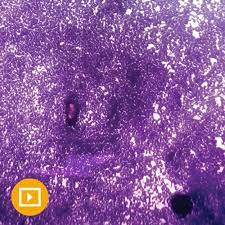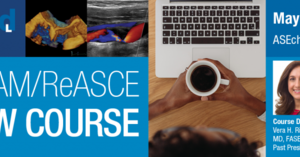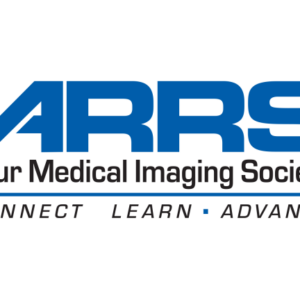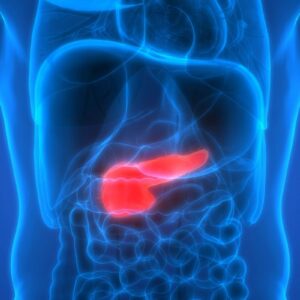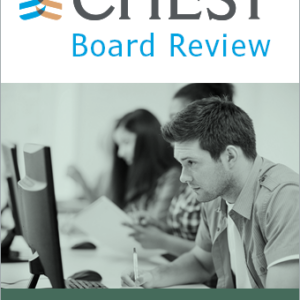This online CME program, led by Christopher J. VandenBussche, MD, PhD, focuses on recent developments in modern diagnostic cytopathology and reviews important cytopathology concepts according to specimen type. It’s geared towards those who may not have formal cytopathology training, covering classic cytomorphology, common pitfalls, and updates on reporting systems such as The Paris System for Reporting Urinary Cytology.
In Masters of Pathology Series – Cytopathology, experts present short, high-yield continuing medical education lectures that help you to:
- Identify ancillary lung specimen tests needed when a new diagnosis of non-small cell carcinoma is made
- Describe changes in the newest version of The Bethesda System for Reporting Thyroid Cytopathology
- Understand situations in which a SUMP diagnosis can be made
- Recognize the cytomorphologic features of common bone and soft tissue tumors on fine needle aspiration
- Compare different methodologies used for HPV testing
- And more…
Learning Objectives
At the conclusion of this activity, the participant will be able to:
- List ancillary tests that should be ordered on lung specimens when a new diagnosis of non-small cell carcinoma is made
- Describe changes made in the newest version of The Bethesda System for Reporting Thyroid Cytopathology
- Name the diagnostic categories used in The Paris System for Reporting Urinary Cytology
- Understand situations in which a diagnosis of Salivary Gland of Uncertain Malignant Potential (SUMP) can be made
- Recognize the cytomorphologic features of common bone and soft tissue tumors on fine needle aspiration
- Compare different methodologies used for human papillomavirus (HPV) testing
Intended Audience
Pathologists needing to improve their understanding and confidence in the diagnosis of cytopathology specimens
TOPICS / SPEAKERS
Introduction: The Changing Cytopathology Landscape – Christopher J. VandenBussche, MD, PhD
The Bethesda System for Reporting Thyroid Cytopathology, Third Edition – Syed Z. Ali, MD, FRCPath, FIAC
Thyroid Cytomorphology Part I – Daniel Lubin, MD
Thyroid Cytomorphology Part II – Daniel Lubin, MD
Molecular Testing in Thyroid FNA Specimens – Michiya Nishino, MD, PhD
Instructive Thyroid FNA Cases – Christopher J. VandenBussche, MD, PhD
The Milan System for Reporting Salivary Gland Cytopathology Second Edition – William C. Faquin, MD, PhD
Salivary Gland Cytology – Common, Uncommon, and Challenging Cases – Zahra Maleki, MD
FNA of Laeral Neck Lesions – A Case-Based Approach – Darcy A. Kerr, MD
Instructive Cases – Head and Neck FNA Specimens – Christopher J. VandenBussche, MD, PhD
Approach to Liver Cytopathology and Small Biopsies – M. Lisa Zhang MD
The WHO System for Reporting Pancreaticobiliary Cytology – Martha Bishop Pitman, MD
The FNA of Solid Lesions of the Pancreas – Monica T. Garcia-Buitrago, MD, FCAP
Approach to the Diagnosis of Pancreatic Cysts – M. Lisa Zhang, MD
Instructive Pancreas FNA Cases – Christopher J. VandenBussche, MD, PhD
The International System for Reporting Serous Fluid Cytopathology – Ashish Chandra, FRCPath, DipRCPath (Cytol)
Pleural Fluid Specimens – Malignant Tumors and Mimickers – Peter Illei, MD
Pelvic Washing Specimens – Christopher J. VandenBussche, MD, PhD
Instructive Pelvic Washing Cases – Christopher J. VandenBussche, MD, PhD
The WHO International System for Reporting Soft Tissue Cytopathology – Vickie Y. Jo, MD
Soft Tissue FNA – A Pattern-Based Approach – Vickie Y. Jo, MD
Soft Tissue Cytopathology – An Update on Immunohistochemical Markers – Vickie Y. Jo, MD
Fine Needle Aspiration of Bone Tumors – Lesions that May Actually Cross Your Desk – Valerie A. Fitzhugh, MD
Soft Tissue FNA Cytology – Lesions Most Likely to Cross Your Desk – Valerie A. Fitzhugh, MD
The Sydney System for Classification and Reporting Lymph Node Cytopathology – Oscar Lin, MD, PhD
Lymph Node Cytology – A Case Based Approach in Small Biopsies – Sara E. Monaco, MD
Cerebrospinal Fluid and Vitreous Fluid Specimens – Cheng-Ying Ho, MD, PhD
Gynecologic Cytology – Human Papillomavirus Biology and Testing in Pap Test Specimens – Michael J. Thrall, MD
Gynecologic Cytology – ASCCP Guidelines and the Role of Cytology in Screening – Michael J. Thrall, MD
Squamous Lesions in Gynecologic Cytology – Donna Russell, CT (ASCP)
Glandular Lesions and Rare Lesions in Gynecologic Cytology – Donna Russell, CT (ASCP)
Challenging GYN Unknown Cases – Donna Russell, CT (ASCP)
Cytology of Non-Small Cell Lung Carcinoma: Does Morphology Matter? – Peter Illei, MD
Lung Tumors Other Than Non-Small Cell Lung Carcinoma – Peter Illei, MD
Ancillary Testing in Non-Small Cell Lung Carcinoma: Why, When and How to Perform? – Peter Illei, MD
Non-Neoplastic Pulmonary Cytology: Bugs, BALs, and Beyond – Peter Illei, MD
Kidney Fine Needle Aspiration and Small Biopsy Specimens I – Madelyn Lew, MD
Kidney Fine Needle Aspiration and Small Biopsy Specimens II – Madelyn Lew, MD
Introduction to the Yokohama System – Gary M. Tse, MBBS
Challenging Cases in Breast Cytology – Christine Noga Booth, MD
The Paris System for Reporting Urinary Cytology – Christopher J. VandenBussche, MD, PhD
Benign and Reactive Findings in Urine Specimens – Christopher J. VandenBussche, MD, PhD
Neoplastic Findings in Urine Specimens – Christopher J. VandenBussche, MD, PhD
Instructive Urine Cytology Cases – Madelyn Lew, MD
Miscellaneous FNA Challenge Cases – Christopher J. VandenBussche, MD, PhD
Commonly Missed Cytopathology CAP Checklist Items I – Sana Tabbara, MD
Commonly Missed Cytopathology CAP Checklist Items II – Sana Tabbara, MD
Date of Original Release: November 15, 2022

